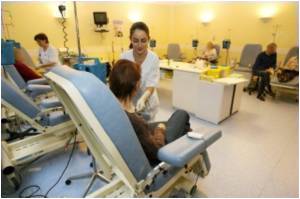Young Asian and Pacific Islander women born in California have increased risk of breast cancer than young white women, according to a new study.

"Historically, rates that suggest a low breast cancer risk among Asian and Pacific Islander women do not usually focus on young women," Hurley said. "They also do not take into account factors such as birthplace, migration status and ethnic ancestry, all of which may determine risk."
For the study appearing in the latest issue of the journal Ethnicity & Disease, Hurley and colleagues used data from a previous study, which found a link between breast cancer cases in California birth records from 1988 to 2004.
The authors looked at data from 3,799 women born in California in the 1960s who eventually developed breast cancer and 17,461 women born in California during the same period who did not develop the disease. Study participants ranged in age from 20 to 44 years, with an average age at diagnosis of 36 years. Findings showed that young California-born Asian and Pacific Islander women had about a 62 percent higher risk of breast cancer than young white women.
All ancestral Asian/Pacific Islander subpopulations-including Japanese, Filipina and Chinese women-exhibited elevated breast cancer risks. "What our research can''t tell us is why," Hurley said.
The age a woman bears her first child, how many children she has borne, her breastfeeding practices and even her diet are all relevant to breast cancer risk and all often have cultural origins, Hurley said. "It is generally believed that Asian women living in the United States have higher rates of breast cancer than Asian women living in Asia," said Hurley.
Advertisement
By 2050, Asian/Pacific Islanders will make up 8 percent of the U.S. population according to projections by the U. S. Census Bureau.
Advertisement
Aggregated data-data that groups all women together without regard to their ethnic ancestry- paints the incomplete picture that Asian/Pacific Islander communities have a low breast cancer incidence, said Roxanna Bautista, director of the chronic diseases program at the Asian and Pacific Islander American Health Forum.
"When disaggregated data is shared, you see that the risk of breast cancer may in fact be elevated among certain groups of Asian/Pacific Islander women as shown in this study. These latest study findings reinforce what those of us who work in the field already know, that this is such an important issue," Bautista said. "Let''s determine what else can be done so Asian/Pacific Islander women can be proactive about screening and pay closer attention to their bodies for any changes."
Source-Newswise














